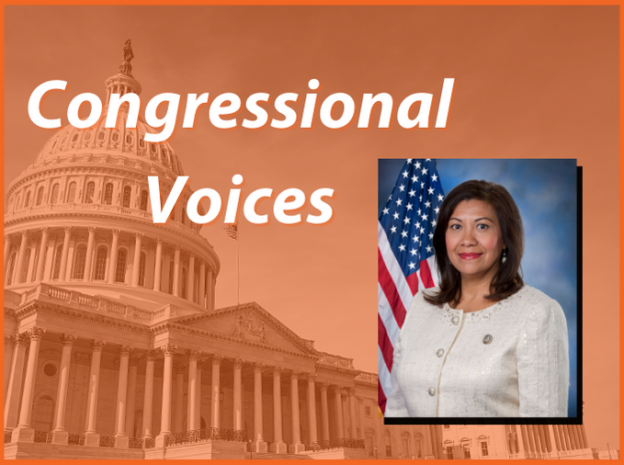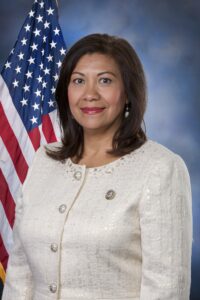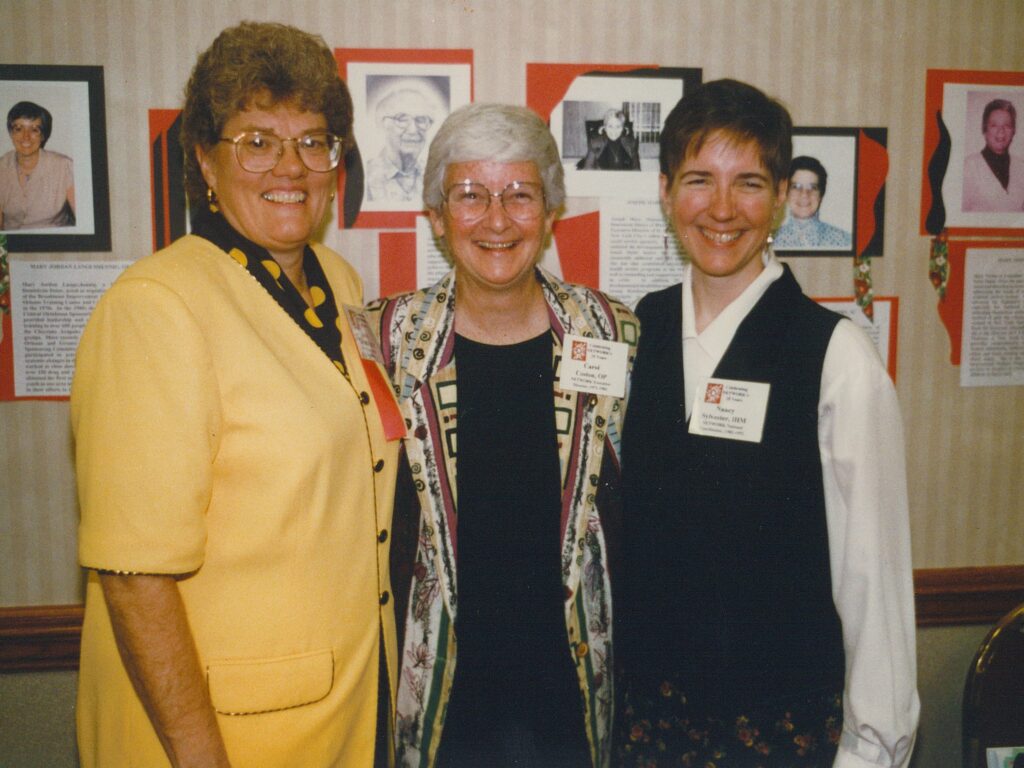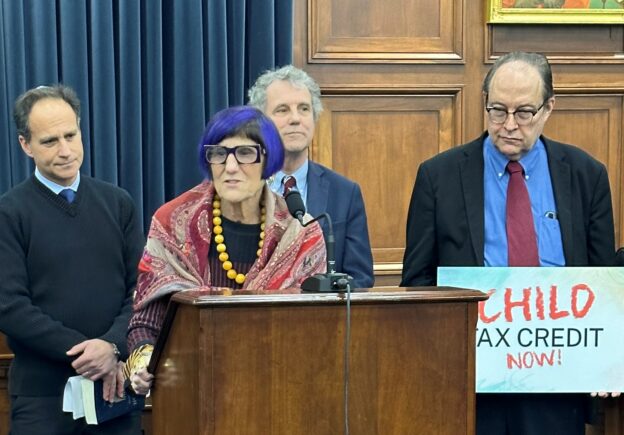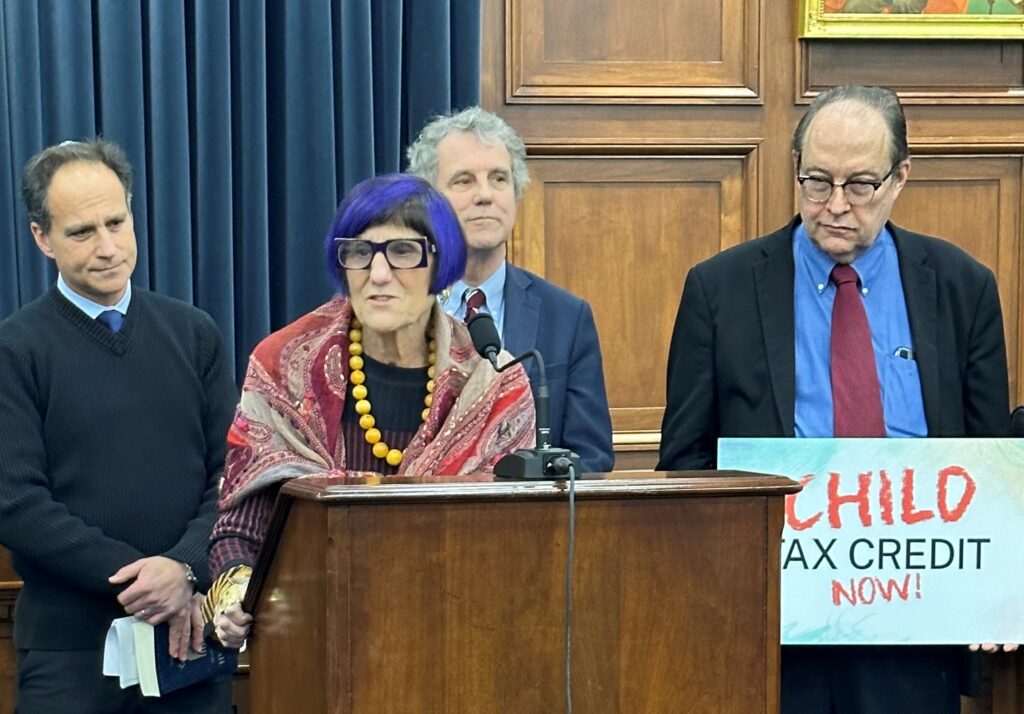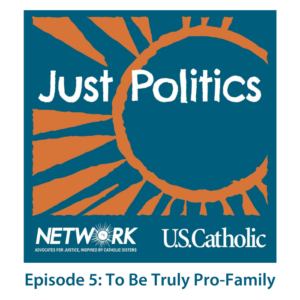
This Advent Calls for Vigilance
Sr. Eilis McCulloh, HM
December 1, 2023
Advent 2023, Week One Reflection: A Call for Vigilance
Readings for the First Sunday of Advent, December 3
Is 63: 16B-17, 19B; 64:2-7
Ps 80: 2-3, 15-16, 18-19
1 Cor 1: 3-9
Mk 13:33-37
The readings on the First Sunday of Advent call for vigilance. In the Gospel, Jesus instructs his disciples to be alert and watchful, careful not to be found sleeping when the time is nigh.
This year, the NETWORK community has had countless opportunities to stay awake and to practice the virtue of vigilance. At a moment’s notice, we have called on faith-filled justice-seekers to protect the rights of asylum seekers in the United States. From the racist and problematic U.S. Customs and Border Protection’s CBP1 App, to the threat to cut funding to programs that serve asylum seekers, some Members of Congress continually proposed drastic changes to the asylum process. And how did you respond? Nearly 10,000 of you signed on to our letter calling on Congress to invest in welcoming communities. You have also called your Members of Congress and visited them.
To receive all of NETWORK’s Advent 2023 reflections in your email inbox, sign up here!
We cannot grow complacent; we must stay awake and vigilant. Just this week, some Members of Congress are trying to decimate the asylum system in order to pass a funding bill. We cannot ignore their attempt to re-institute an asylum ban.
In this Sunday’s first reading, Isaiah tells us the story of the people who longed for God to come down from on high with a force that would shake the mountains, but, instead, we are reminded that “we are the clay and you are the potter: we are all the work of your hands.” To participate in the building up of Welcoming Communities, we, too, seek to do the work of God. With the Psalmist, we turn our face to God, eager to have God show us the way to the building up of the Kin-dom here on Earth.
To do this, we must all participate in the work to bring more abundant life to all of God’s people, because the hope for abundant life does not end at our borders. It does not stop to decide if someone has the proper documents. Abundant life is God’s hope for all of us—and we will continue to be vigilant and respond to any threat to take away someone’s chance at abundant life.
To receive all of NETWORK’s Advent 2023 reflections in your email inbox, sign up here!
Fortunately, we are not alone in this work. Fortunately, the NETWORK community lives out this mission together. Our Spirit-filled community of justice-seekers has significantly influenced elected officials this year to ensure the federal government makes room for the people most in need in our communities.
We draw strength and encouragement from living this shared mission together, and we draw our hope from the God who, according to St. Paul, remains faithful and will keep us firm to the end.

Call to Action:
Congress is now back in session, and their first order of business is passing a package to meet the President’s supplemental funding request for aid for Ukraine, Israel, and Taiwan. Unfortunately, some Members of Congress are pushing to decimate asylum in the U.S. as a condition of this deal.
To receive all of NETWORK’s Advent 2023 reflections in your email inbox, sign up here!
The legislative priorities not passed before the end of the 117th Congress will continue to be priorities of NETWORK in 2024 and beyond!







